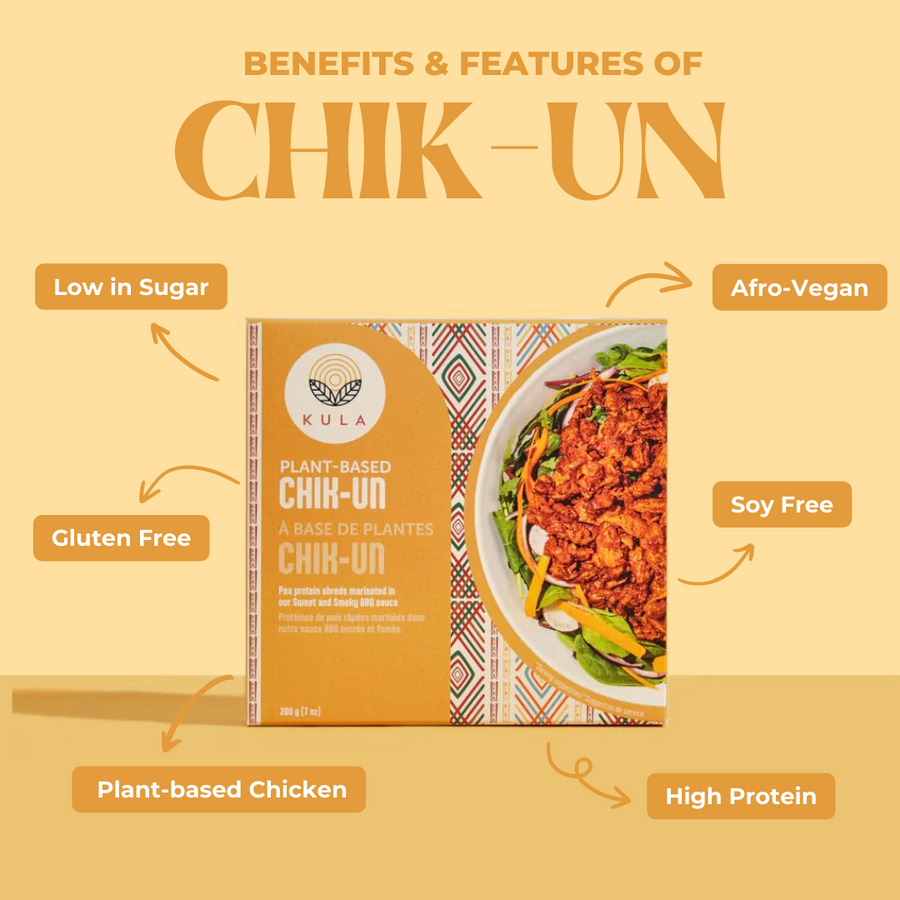Everything About Healthy And Balanced Food: Advantages of Checking Out Plant Based Alternatives
The conversation bordering plant-based diet regimens has actually gotten considerable interest over the last few years. Numerous individuals are exploring the possible health advantages, dietary benefits, and environmental impacts related to these dietary selections. As people come to be extra familiar with their food's impact on wellness and sustainability, questions arise concerning the functionalities of embracing such a lifestyle. What specific adjustments can one expect, and how might these selections improve not only individual health and wellness but additionally the earth's future?
Comprehending Plant-Based Diets
Although lots of people associate plant-based diet regimens generally with vegetarianism or veganism, these diets can encompass a vast array of eating patterns that prioritize whole, minimally refined plant foods. Such diet regimens commonly include fruits, veggies, whole grains, vegetables, nuts, and seeds, while eliminating or restricting pet products. This adaptability permits people to tailor their nutritional choices according to dietary needs and individual choices. Some may embrace a mainly plant-based diet plan while still periodically consuming meat or dairy, usually referred to as a flexitarian technique. The emphasis continues to be on incorporating even more plant foods, which can bring about a diverse variety of dishes and flavors. Comprehending these numerous interpretations of plant-based eating is vital for valuing its accessibility and charm in contemporary food culture.
Wellness Conveniences of Plant-Based Foods
The health and wellness benefits of plant-based foods are substantial, using a nutrient thickness advantage that supports general health. Study shows that these foods can boost heart health and play a vital function in efficient weight administration. By including extra plant-based alternatives, people might boost their nutritional options and advertise long-lasting health and wellness.
Nutrient Density Advantage
Nutrient density plays a necessary duty in the wellness advantages of plant-based foods, making them a compelling option for those seeking a balanced diet. Plant-based foods, such as fruits, vegetables, legumes, nuts, and entire grains, are often abundant in essential vitamins, minerals, and anti-oxidants while being reduced in calories. This high nutrient thickness enables individuals to consume less calories while still fulfilling their dietary demands. Furthermore, these foods are packed with dietary fiber, advertising digestive system wellness and helping in weight administration. By incorporating nutrient-dense plant-based options, customers can improve their overall health, sustain their immune systems, and reduce the threat of persistent illness. Inevitably, the nutrient thickness of plant-based foods underscores their relevance in a health-conscious way of living.
Heart Health Renovation

Weight Monitoring Assistance
In enhancement to promoting heart health, a plant-based diet regimen can considerably help in weight management. This dietary strategy highlights entire foods such as fruits, vegetables, legumes, nuts, and entire grains, which are usually lower in calories and higher in fiber contrasted to animal-based products. The high fiber web content helps raise satiety, reducing general calorie consumption. Moreover, plant-based diet plans are usually abundant in essential nutrients while reduced in unhealthy fats, making it much easier to maintain a healthy weight. Plant Based Beef. Study indicates that individuals that take on a plant-based lifestyle have a tendency to have reduced body mass indexes (BMIs) and experience more successful fat burning compared to those who take in meat-heavy diet regimens. Consequently, accepting plant-based alternatives is a strategic choice for efficient weight monitoring
Nutritional Worth of Plant-Based Ingredients
Plant-based ingredients are rich in necessary nutrients, supplying a diverse array of vitamins, minerals, and anti-oxidants that add to general health and wellness. A comparison of protein sources reveals that while animal items are typically considered as remarkable, many plant-based options give adequate protein and various other advantageous substances. Recognizing the dietary worth of these active ingredients can aid people make educated nutritional options.
Necessary Nutrients in Plants
Nutrient-rich components discovered in plants provide a diverse array of important nutrients that add substantially to total health and wellness. These components are rich in vitamins A, C, and K, which sustain immune feature, vision, and blood clotting, respectively. Additionally, plants give vital minerals such as magnesium, calcium, and potassium, vital for heart health and wellness, muscle feature, and bone stamina. The presence of fiber in plant-based foods help digestion and promotes a healthy and balanced gut microbiome. Anti-oxidants, discovered abundantly in veggies and fruits, help fight oxidative tension and reduce swelling. Furthermore, several plant foods are low in calories yet high in nutrients, making them an exceptional selection for those seeking to keep a healthy and balanced weight while guaranteeing suitable nutrient intake.
Contrasting Healthy Protein Resources
Protein resources differ significantly in their nutritional profiles, with plant-based ingredients offering unique benefits. Unlike pet proteins, which typically include saturated fats and cholesterol, plant healthy proteins often tend to be lower in these unhealthy components. Legumes, nuts, seeds, and entire grains are rich in necessary amino acids, fiber, vitamins, and minerals. For example, lentils supply high protein content along with considerable iron and folate, while quinoa is a total protein, supplying all nine important amino acids. In addition, plant-based proteins are usually gone along with by antioxidants and phytochemicals that sustain overall wellness. The shift to plant-based healthy protein sources not just improves dietary intake yet likewise description straightens with sustainable nutritional methods, reducing ecological impact and advertising long-term health and wellness advantages.
Ecological Influence of Plant-Based Consuming
As understanding of climate change expands, lots of individuals are exploring lasting dietary selections that can greatly minimize their ecological impact. Plant-based consuming has actually become a substantial contributor to minimizing greenhouse gas emissions, which are mostly related to livestock manufacturing. The growing of fruits, grains, veggies, and legumes generally needs less sources, such as water and land, compared to animal farming. Furthermore, plant-based diet regimens can bring about decreased deforestation, as much less land is required for grazing animals or expanding animal feed. By shifting towards plant-based choices, customers can sustain biodiversity and advertise much healthier ecosystems. In general, accepting plant-based consuming not just advantages individual wellness yet also represents a vital step toward environmental sustainability and conservation initiatives.
Overcoming Common Misconceptions
While lots of people acknowledge the advantages of a plant-based diet plan, numerous false impressions often prevent them from totally accepting this way of life. An usual idea is that plant-based diet regimens do not have adequate protein; however, various plant sources, such as legumes, nuts, and tofu, provide enough healthy protein. In addition, some presume that this diet plan is expensive, when as a matter of fact, staples like beans, rice, and seasonal vegetables can be fairly affordable. An click for info additional misunderstanding is that plant-based eating is overly limiting, whereas it really provides a varied variety of foods and flavors. Lastly, numerous stress that a plant-based diet regimen may cause deficiencies, yet with correct planning, people can obtain all needed nutrients, including nutrients, while delighting in a vast variety of scrumptious meals.
Tips for Transitioning to a Plant-Based Way of living
Making the shift to a plant-based way of living can be an enhancing experience, though it often needs some guidance to navigate the initial modifications. Initially, individuals are motivated to start progressively, including more fruits, veggies, legumes, and entire grains right into their meals while lowering meat and dairy usage. Meal planning is crucial; preparing a regular food selection can aid ease the modification and protect against final unhealthy choices. Exploring new dishes and cooking approaches can likewise boost the experience and keep enjoyment regarding plant-based consuming. In addition, signing up with support system or communities can offer inspiration and share useful pointers. Staying notified about nutrition guarantees balanced dishes, preventing shortages while promoting a healthy and balanced, gratifying plant-based lifestyle.

Delicious Plant-Based Meal Ideas
Discovering tasty plant-based dish ideas can motivate individuals to accept an extra nourishing diet plan. One preferred option is a passionate quinoa salad, including cherry tomatoes, cucumber, and a vibrant lemon-tahini dressing. One more fave is a savory lentil stew, packed with carrots, celery, and great smelling herbs, ideal for a calming dinner. For breakfast, over night oats made with almond milk, chia seeds, and covered with fresh berries provide a healthy begin to the day. In addition, a vibrant vegetable stir-fry with tofu and a selection of vivid veggies can be a fast yet satisfying dish. Ultimately, creamy avocado toast on whole-grain bread, sprinkled with seasonings and seeds, offers a basic yet savory treat. These meals showcase the variety and richness of plant-based eating.

Regularly Asked Concerns
Can a Plant-Based Diet Provide Sufficient Protein?
The question of whether a plant-based diet regimen can supply adequate protein is usual. Many sources, consisting of vegetables, nuts, seeds, and entire grains, can fulfill protein requires successfully, supporting a nourishing and balanced diet plan for people.
Are Plant-Based Diet Plans Appropriate for Kid?
The viability of plant-based diets for children depends upon careful planning. Ample nutrients need to be guaranteed, consisting of minerals, vitamins, and proteins. With appropriate guidance, such from this source diet plans can support healthy development and advancement in kids.
How Do I Eat in restaurants on a Plant-Based Diet regimen?
Eating in restaurants on a plant-based diet regimen involves looking for dining establishments with diverse food selections, asking for adjustments, and discovering vegan-friendly choices. Planning ahead and connecting nutritional preferences can improve the eating experience while maintaining dietary selections.
What Are Common Allergens in Plant-Based Foods?
Typical irritants in plant-based foods include soy, gluten, nuts, and seeds - Gluten Free BBQ Sauce. Individuals following a plant-based diet plan needs to recognize these allergens and check out tags carefully to avoid negative responses and assure safe consumption
Can Plant-Based Diets Assist With Weight Loss?
Research indicates that embracing a plant-based diet plan might promote weight loss due to its usually reduced calorie thickness and greater fiber web content. This mix can boost satiation, aiding people manage their caloric consumption effectively. Many people connect plant-based diets mostly with vegetarianism or veganism, these diets can incorporate a wide array of consuming patterns that prioritize entire, minimally refined plant foods. Nutrient density plays a crucial function in the health and wellness benefits of plant-based foods, making them a compelling choice for those seeking a balanced diet regimen. Plant-based diet regimens have actually been revealed to substantially boost heart wellness, as they commonly consist of aspects that support cardio feature. In enhancement to promoting heart wellness, a plant-based diet can substantially aid in weight monitoring. A typical belief is that plant-based diets do not have adequate protein; nonetheless, many plant sources, such as legumes, nuts, and tofu, give adequate protein.